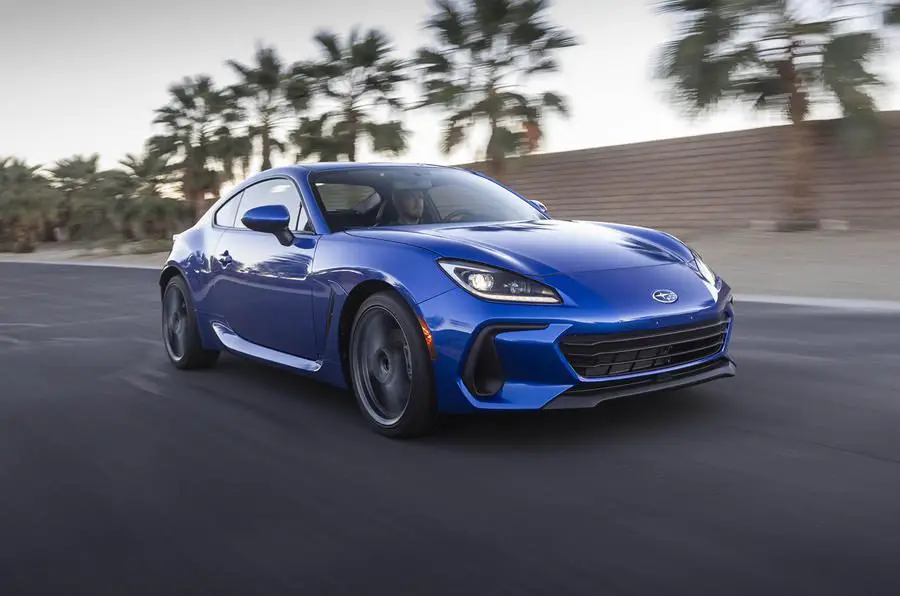How Much Does It Really Cost To Own A Car?
How Much Does It Really Cost To Own A Car? Expenses You May Not Have Considered
For most first-time car buyers, the first thing that comes to mind when you think of car cost is the amount displayed on the car in the showroom. And many people end up drawing their budgets solely with the purchasing price in mind, only to find out they have more to deal with in terms of other expenses. Buying a new car is a significant financial decision, even for those who already have the spare cash to burn.
That is why it is vital to do enough research about the expenses to expect to have a good idea of what you’re getting yourself into. You want a car that will give you the freedom of mobility you deserve, not a white elephant sitting in your garage and leaving you with nothing but buyer’s regret. So, are you looking to buy your first car? Do you have any idea how much it will cost you after driving out of the showroom? Here are some car buying expenses you may not have considered.

Purchasing cost and upfront payments
It is probably safe to assume that you know that different car brands come with different costs, so there’s little need to spend a lot of time here. How much your car will cost depends on so many things, including the brand, manufacturer, specs, model year, etc. However, it is essential to note that the initial price tag isn’t necessarily the final price if you’re purchasing a used car. You can always bargain, and your bargaining power will depend on things like the vehicle specs, model year, car mileage, identified issues, etc.
Aside from the initial cost of your car, you should also consider other significant upfront expenses. One of them has to do with the vehicle inspection. You’re excited and in a hurry to drive off in your new ride, and that’s understandable. But if you’re purchasing a new car, then you cannot ignore the importance of getting a professional to inspect it. Doing this will help you reveal any problem you might not notice through an optical inspection. A vehicle inspection may mean pulling out your wallet for some extra bucks, but it will save you from unforeseen expenses later. You can click here for vehicle inspection information for a used car.
Maintenance and servicing costs
Maintenance and servicing costs are not one-time expenses. These ongoing costs may vary, depending on your car and the potential issues you may have to deal with. However, the average American car owner can expect to cash out an average of $2000 over five years on car maintenance and servicing costs alone. Servicing and maintenance costs may include things like getting your fuel refills, changing your oil, filter changes, scheduled routine maintenance, and general inspections, changing worn-out car tires, you name them.
If you want your car to last as long as you need it to, you need to ensure that you factor in all these maintenance costs and have them done regularly. Generally, you can expect to spend less on maintaining a new car than you will on a used one.

Insurance coverage
Car insurance is now mandatory in different parts of the world. In the United States, it is illegal to drive without insurance cover in all but one state. Car insurance is sometimes a costly and confusing subject for most people. Because most car insurance laws and regulations are set, enforced, and regulated at the state level, different states tend to have various regulations. And to be on the safer side, your only option is to ensure that you purchase car insurance as soon as you own a vehicle. Some cars (especially new ones) already come with insurance cover included in the price tag. So, you should ensure that you make all the necessary inquiries before making your purchase. However, in some cases, you will need to have a mandatory third-party insurance provider as part of your vehicle registration process.
Different insurance providers offer various car insurance policies. Some coverage may only focus on specifics like protection from legal liability, cover for damages, etc. Other policy types may provide comprehensive coverage, covering things like vehicle repairs, replacement, etc. That means the amount of money you can expect to pay for your insurance coverage will depend on the extent of the insurance policy. These can range from a few dollars to thousands of dollars. But when it comes to the correct car insurance cost, everything from your age and marital status to your credit score matters. Other factors like your age, the city you live in, etc., will all affect how much you may end up paying for your insurance.
Interests on loan payments
If you already have enough money saved up for your new car, then you probably don’t need to bother yourself with this point. But if you’re part of the majority of Americans that rely on car loans to get their new rides, then you also need to consider loan payment costs and the interests they come with. If you purchase a car with the help of a loan, then you should know that you’ll probably be paying not only the loan but also the interest it accumulates every month.
How much exactly will depend on your creditor’s policies, the value of your car, the payment duration, your credit score, etc. Different credits will offer you different loan interests. However, you have to ensure that you understand all the terms and conditions that come with such financial aids before signing up for them. Additionally, it is best to take the time to research the various options available to you before settling for one.

Payment options
Again, if you need some form of financial assistance to own your new car, you may need to consider the payment options available to you. Financial aid comes in various forms, one of which, as already mentioned, has to do with getting a loan from your creditor or bank. Other payment options worth considering include the following, using your credit card, hire purchase to finance your car, personal contract purchase, personal contract hire (or leasing), etc., depending on where you live. The total cost you will end up spending will depend on the financing option you choose. If your financing option requires you to pay for your car in installments, then you may need to make a much lower financial commitment in the form of a down payment. However, when you calculate how much you may spend on your monthly repayments (as well as interests), you could end up paying a lot more than the original cost of the vehicle.
Car registration
Every vehicle in the United States must have a certificate of ownership, which shows the name of the vehicle’s registered owner. If you’re planning to purchase a new car, then you need to ensure that you have it registered if it isn’t. In the United States, a registration for a vehicle may be a flat one-time payment option. It may also be based on the vehicle’s age, weight, or value (or even a combination of all the factors). Without registering your car, you will not be issued a license plate. You can expect to pay your registration fee or renew it annually or on different schedules in most cases. Aside from the registration fees, you should also consider other things like road tax. Although all states may levy a yearly registration fee for road tax, exactly how much will vary considerably from state to state.

Other costs
As mentioned earlier, some vehicle insurance policies cover basic repairs, damages, replacement parts, etc., after a car accident. But if you live in a state that doesn’t require you to have insurance cover, then you’ll have to find ways to handle these expenses on your own. Keeping a car going also comes with certain basic expenses that may not be as regular as paying a car loan. Some of these costs may not even sound significant until you start adding them up. Expenses like regular car wash services (if you don’t have the time to do them yourself), tuning up your car or making custom upgrades, etc.
Purchases from a private sale or auction
Buying a car directly from the owner in a private sale may come without much of the financial protection you may receive from purchasing from a licensed dealer. For example, when buying directly from a previous owner, you may not benefit from the financial security of a warranty. That means you will have to handle every financial responsibility on your own if you fail to inspect the vehicle closely or if it falls short of the level of performance you were expecting.
That means you may end up spending a lot more using your car than you would with a warranty. The same thing applies to purchasing from an auction. You may be able to walk away with a vehicle cost way lower than the market value, but you’ll be left without the protection of a warranty. You may also not benefit from prior inspections and test drives, putting you at risk of bigger financial responsibilities after making your purchase.



